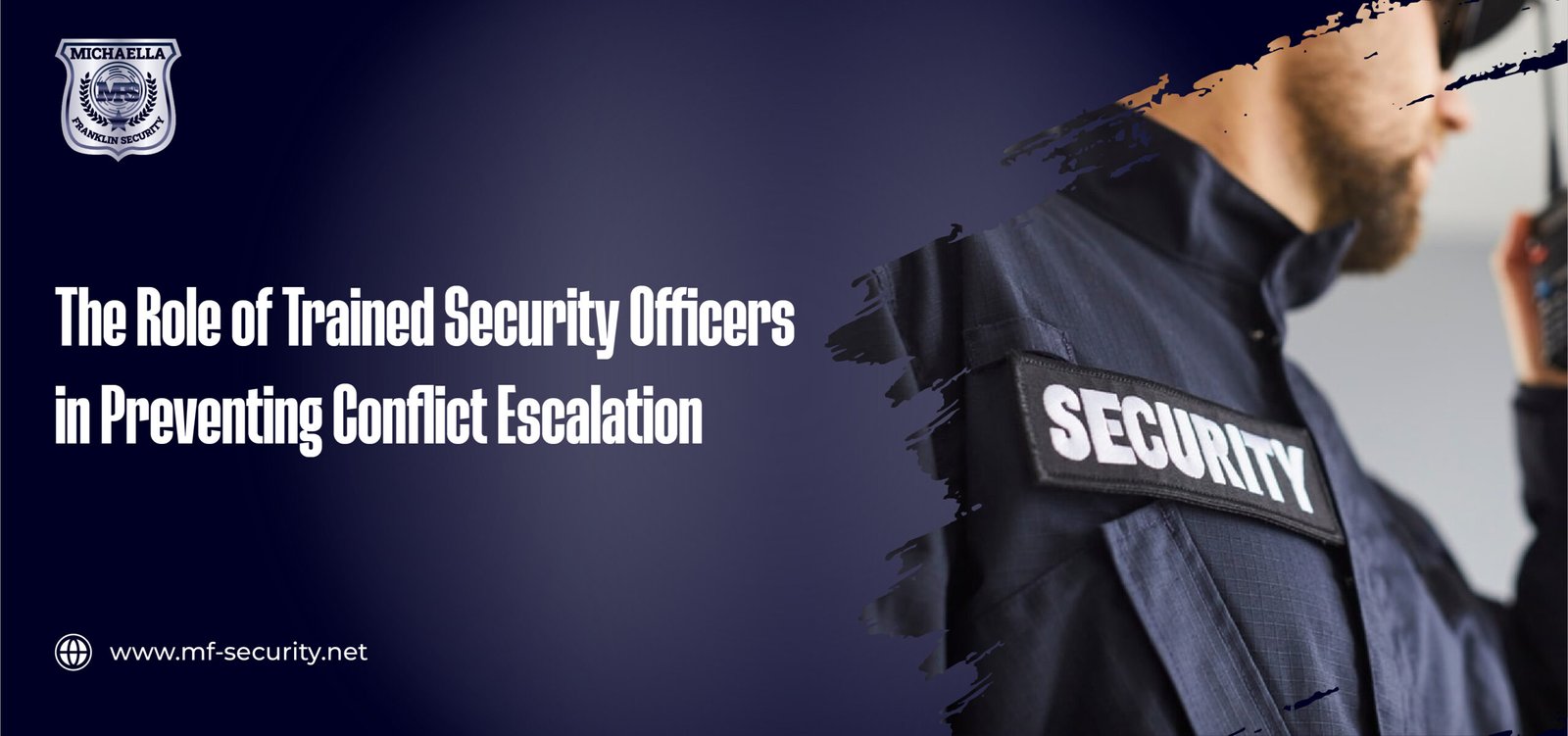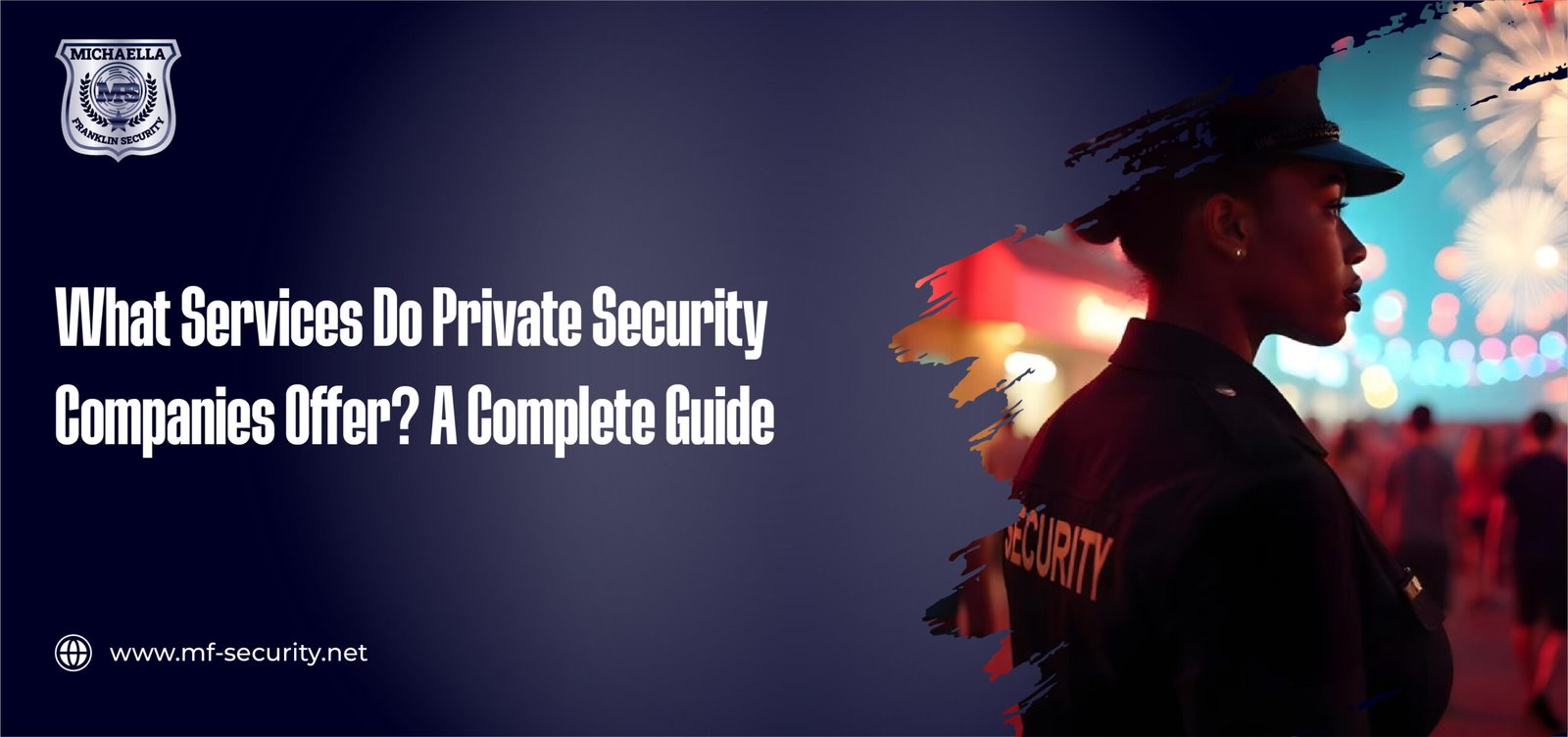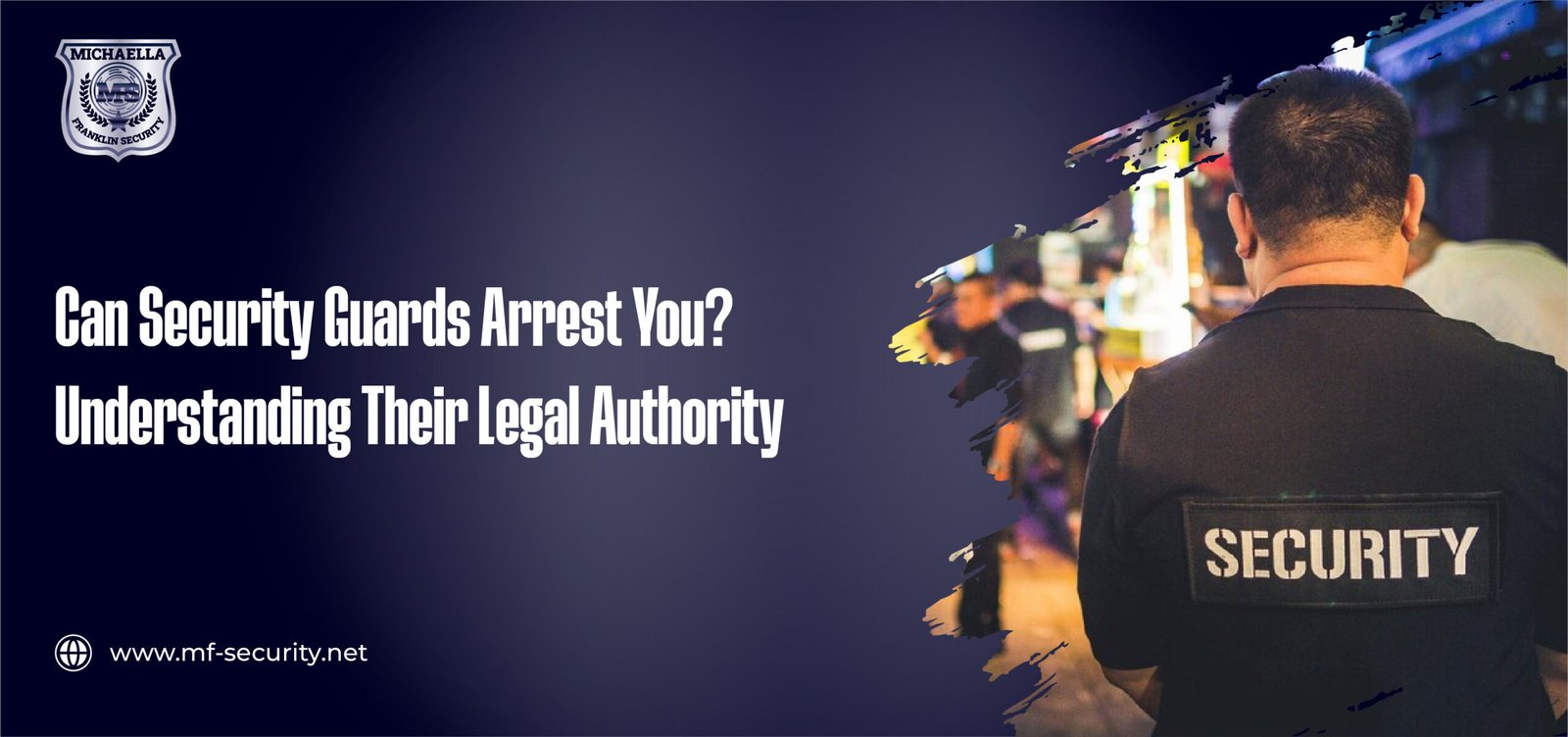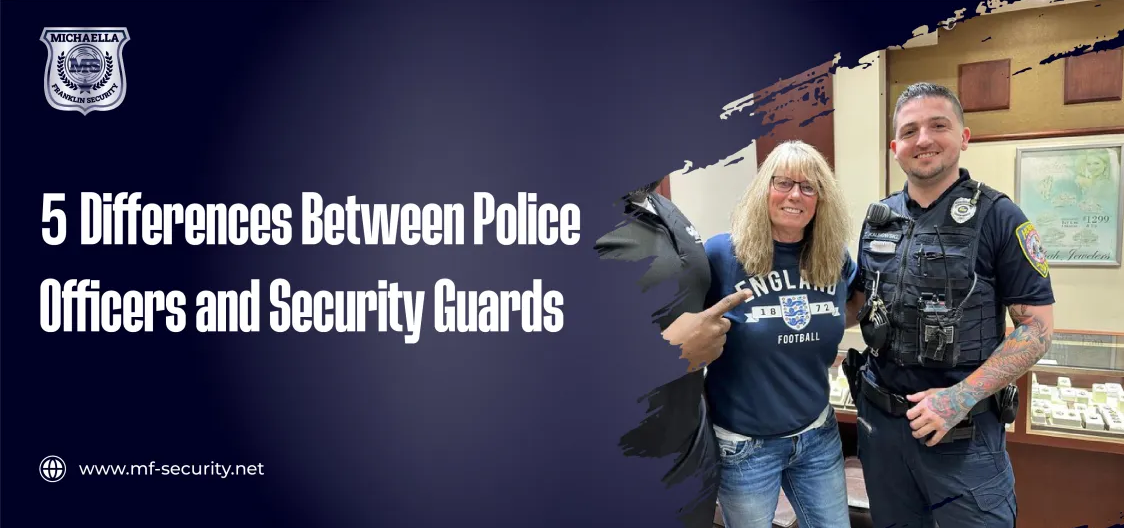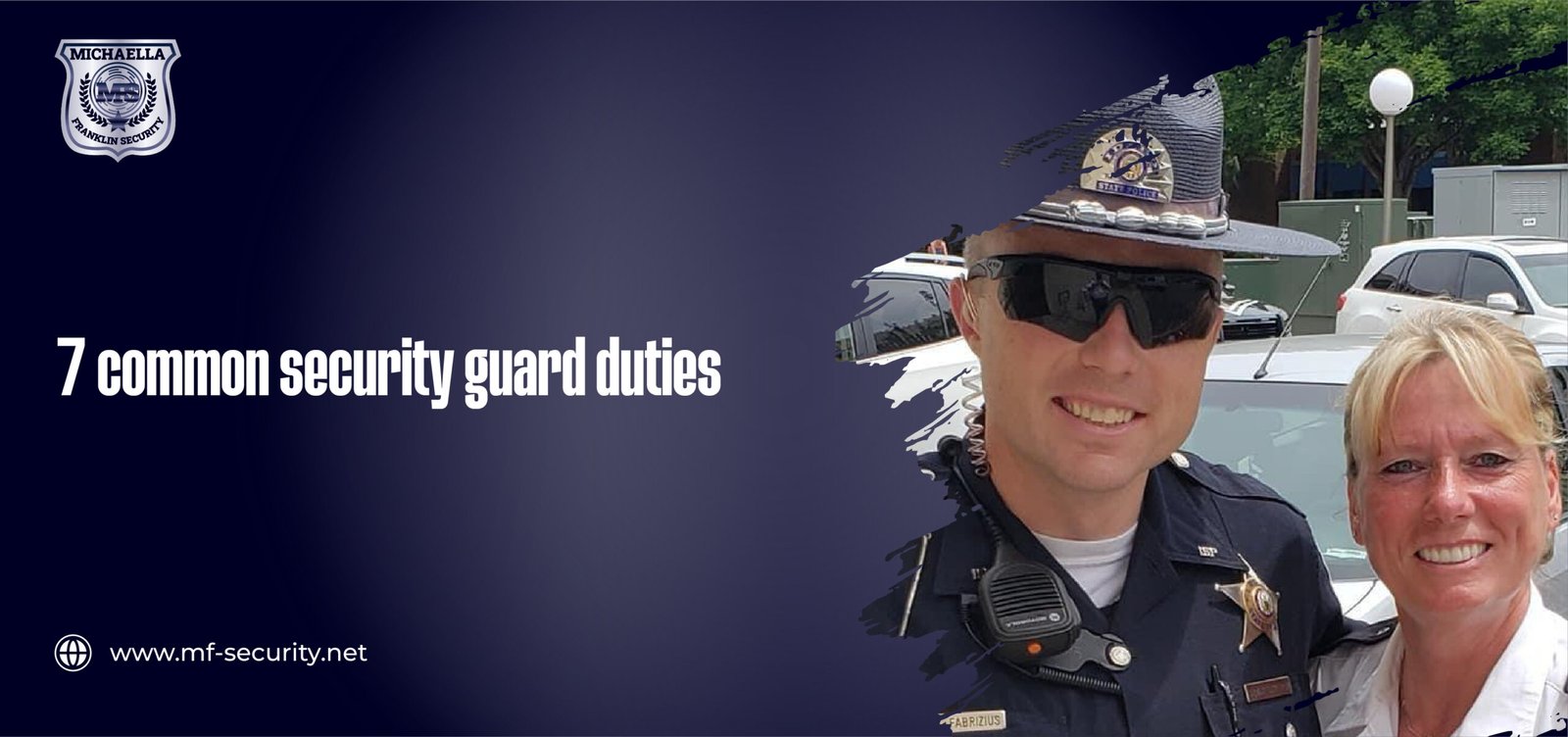The trained security officers are needed more than ever to live in an unpredictable world. They are not only needed to keep crime at bay, but in shopping malls, school, hospitals, corporate buildings, at large-scale gatherings or in areas managed by the community, the presence of male guards are required, not only to fend off criminal activities, but stop any conflict situation developing into a life threatening or violent one. A fight is a typical incident involved in human life; however, when the emotion of the heart is stronger, a small fight can easily get out of control. It is here that trained security officers come in with their primary role being the first responders, mediators and solvers.
Understanding Conflict Escalation
The escalation of conflict implies a situation where conflicts are increasing, which can end in threats, aggression, or violence. Anyone can also escalate tension due to factors related to miscommunication, frustration, lack of authority presence, external stressors, etc. Without any measures being implemented, a minor squabble over a line in the workplace or caused by two people not understanding each other can turn into violent conflicts and even criminal actions.
Training not only equips security officers with skills to act in the face of an active attack but also teaches them to recognize precursors of the conflict and how to diffuse it. It is not just their mere presence that can be used as a calming effect, but rather their skill set that will make the difference.
The Value of Proper Training
Not all security personnel are equal. The effectiveness of a security officer in conflict management largely depends on the quality of their training. Professional training programs cover not only physical security tactics but also verbal communication, crisis negotiation, situational awareness, and legal boundaries. Officers learn how to:
- Identify behavioral cues indicating rising tension
- Communicate calmly and with authority
- Mediate disputes impartially
- Apply appropriate physical intervention only as a last resort
- Understand the cultural, emotional, and psychological factors involved in conflicts
This holistic training equips them to manage a wide variety of situations, from a drunk individual causing a scene at an event to a heated exchange between employees or a distressed visitor at a hospital.
Partner with Michaella Franklin Security Inc for trained security officers who excel at preventing conflict escalation. Learn about our security services.
Proactive vs Reactive Approaches
The best security officers do not simply wait for conflict to break out; they act proactively to prevent it. By patrolling high-traffic areas, observing body language, and interacting with the public in a friendly yet professional manner, they create an environment of safety and respect. Their visibility often acts as a deterrent, discouraging aggressive behavior before it begins.
Proactive strategies also involve building relationships. In community settings, for example, familiar faces in uniform can foster trust. When people feel heard and respected, they’re less likely to act out. Security officers who take time to understand the social dynamics of their environment are better equipped to intervene effectively.
Communication as a De-Escalation Tool
Effective communication is one of the capabilities of a trained security officer; it is one of the best things a security officer can have. How something is said as opposed to what is said is just as relevant during tense situations. Officers learn how to use a calm tone, open body language, and non-confrontational phrasing to de-escalate emotional responses. They can move the problem away from resolution by simply confirming the fears of those who do not entirely agree with them.
Another illustration is that a customer dissatisfied with a policy can start screaming at a worker in a store. Listening to the officer, they can also adopt a calm tone of voice and acknowledge the person’s frustration. They should then describe the policy responsively and demonstrate a professional approach to finding a solution, ensuring the employee feels heard. This is not a way to inflate tension, but diffuses it.
Situational Awareness and Risk Assessment
Situational awareness is a key skill of the most trained security officers, which is an evaluation of the environment and the ability to predict the risk of those factors before they increase. This involves the ability to identify exit paths, know how to react to suspicious conduct, and recognize patterns that portend in-brewing conflict. Their discretion enables them to understand when an incident could be solved by communicating with people, when they require reinforcement, and when they should request the police.
The skill is of particular importance in large social gatherings, such as sporting events or concerts, where the intensity of people can, in some cases, lead to aggressive behavior. Remaining informed and responsive, the officers will intercept potentially violent situations and eliminate them before they reach the general population and begin to cause any other problems.
Physical Presence and Intervention
The trained security officers are ready to deal with those situations when the use of words does not help; however, the first aim is always de-escalation. In the event, their physical training can ascertain their proper subduing of subjects in a lawful, safe, and secure way since the aggressor is justified in these cases, and the onlookers are not in any danger. Notably, such intervention is only carried out when there is an absolute need to do so, and it is exercised by minimal force as per legal order and professional ethics.
Law enforcement also cooperates with officers in situations beyond their scope, serving as informants to enable authorities to act more efficiently.
Want to reduce risks and enhance safety? Discover how our professional security officers handle conflict resolution effectively by visiting our event security services page.
Psychological Care and Sympathy
Most of myriads of conflicts originate due to emotional distress, mental health crises, or frustrations. Mental health first aid, basic knowledge, and crisis intervention are some of the skills of highly trained officers. They are taught how to tell when a person is not just behaving disruptively but perhaps is in need of help. Empathy plays an important role in such scenarios. The abilities of responding assistance (counselors, medical, or social workers) not only help in solving problems immediately but also serve the whole community in the future.
The Broader Impact
When trained security officers consistently prevent conflict from escalating, the benefits extend beyond the immediate situation. Their actions contribute to:
- Safer environments where people feel secure and respected
- Improved public trust in authority and event organizers
- Fewer incidents requiring police involvement
- Reduced liability for organizations and businesses
- More positive community interactions
In many ways, security officers are unsung heroes—working behind the scenes to maintain order and peace, often without recognition. Their ability to prevent conflict escalation saves resources, protects lives, and upholds social harmony.
Conclusion
It is unavoidable that there is a conflict, but not violence and mayhem. Given proper training, attitude, and encouragement, security officers can become imperturbable, confident mediators who, instead of escalating a tense situation, can make it a chance for resolution. They are necessities in the modern world due to the fact that they are able to read situations, effectively communicate with others, and intervene in events. In school halls or in a stadium, where a large flow of fans is gathered, the mission of the well-trained security officials to avoid the development of conflict is vital, potent, and can be appreciated.
Ensure your event runs smoothly with expert conflict management from Michaella Franklin Security Inc. Contact us today to explore our security solutions.

